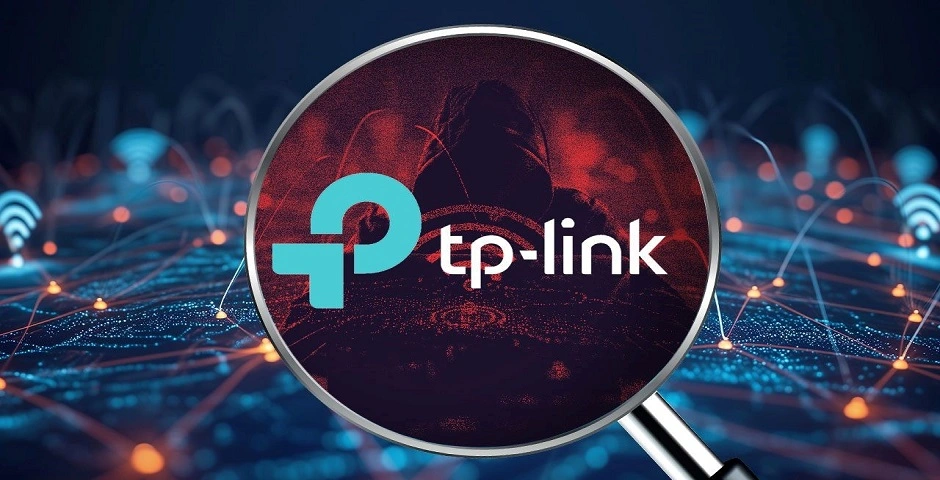
Technology plays an essential duty in our day-to-day lives, and accompanying the growing interconnectivity of designs, the protection of these sciences has become a growing concern. Recently, US lawmakers have raised alarm over the potential risks of handling WiFi routers manufactured by TP-Link, a Chinese inmate, due to fears of Chinese computerized attacks.

The concerns have entailed a comprehensive investigation into the guardianship implications of applying TP-Link routers, emphasizing the need to safeguard fault-finding foundations and private data from potential warnings.
TP-Link, an important manufacturer of socializing for professional or personal gain devices, has gained celebrity for its inexpensive yet trustworthy WiFi routers used in hometowns, businesses, and even administration agencies.
However, with growing geopolitical tensions between the United States and China, concerns have been nurtured regarding the potential risks guided by using Chinese-made electronics that could compromise governmental security and individual privacy.
In reaction to these concerns, US lawmakers have urged for a comprehensive probe into TPLink’s cybersecurity practices among fears of Chinese cyber attacks. The lawmakers have emphasized the following key points,
• The potential exposure of TP-Link routers to cyber interruptions and data breaches.
• The risks of Chinese government impedance and espionage through backdoors or malware entrenched in the routers.
• The implications of utilizing TP-Link routers in the critical foundation, government abilities, and sensitive data networks.
The issue goes further with individual privacy concerns; it offers the broader civil security associations to rely on foreign-created technology, particularly from countries accompanying a history of computerized espionage and intellectual property stealing.
With the increasing digitization of association and the growing confidence in WiFi routers for communication and connectedness, ensuring the security and honor of these devices is critical to safeguarding delicate information and foundation.
In light of these concerns, lawmakers have called for an all-encompassing investigation into TPLink’s security practices, persuading regulatory carcasses and cybersecurity experts to determine the risks associated with utilizing TPLink routers. The investigation aims to address the following key areas,
• Conduct exposure assessments to recognize potential weaknesses in TP-Link routers that may be exploited by high-tech attackers.
• Analyzing the firmware and software components of TP-Link routers for some malicious laws or vulnerabilities.
• Assessing the party’s cooperation accompanying Chinese authorities and the potential risks of data sharing or surveillance.
The care of critical foundations, including electronics networks, power grids, and management systems, is paramount in assuring national safety against cyber warnings. As WiFi routers serve as the pylon to the internet and play a crucial duty in connecting ploys to networks, ensuring the freedom of these devices is ensured by preventing unauthorized approaches and potential cyber-attacks.
Amidst the concerns encircling TP-Link routers and cybersecurity risks, users can take full of enthusiastic steps to enhance their safety posture:
• Regularly update the firmware of TP-Link routers to patch famous vulnerabilities and improve freedom features.
• Change default passwords and allow encryption settings on WiFi networks for fear of unauthorized approach.
• Monitor network activity for any doubtful or unusual act that may display a security rupture.
• Consider using alternative router brands from trusted manufacturers accompanying a strong track record in cybersecurity.
In response to the entails investigation, TP-Link has furiously denied any claims of wrongdoing or protection risks associated with allure products. The association has stressed allure commitment to cybersecurity best practices and compliance accompanying industry guidelines, highlighting Allure’s track record of providing trustworthy and secure networking solutions to purchasers worldwide.
The continuous debate surrounding TPLink and Chinese tech companies has sparked discussions inside tech manufacturing about supply chain security, risk alleviation strategies, and the act of government oversight in conserving digital foundations. Stakeholders are closely listening to developments and evaluating the potential impact on the all-encompassing tech ecosystem.
As the review into TPLink unfolds, stakeholders are vigilant closely to visualize how the verdicts will shape cybersecurity policies, supply chain management practices, and public-private participation in the digital rule. The outcome of the probe will likely influence the approach to diminishing cyber warnings and ensuring the resilience of fault-finding infrastructure moving forward.
The recent concerns elevated by US lawmakers regarding TP-Link routers and the potential risks of Chinese computerized attacks serve as a notice of the need to prioritize protection in an increasingly pertain world.
By addressing these concerns through all-encompassing investigations, embellished security measures, and conversant decision-making, collaborators can work towards protecting critical foundation and personal data from cyber dangers. Contact Proxy Job Support for more information.